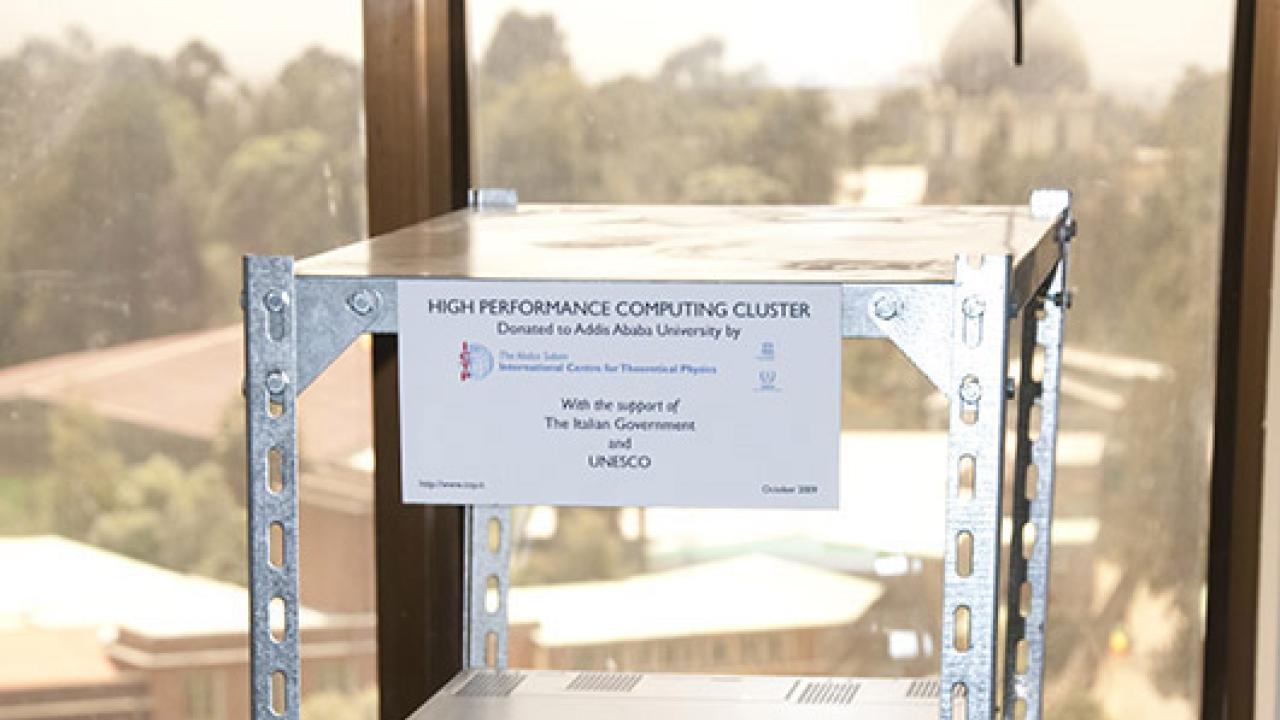
From finance to transport, from manufacturing the perfect potato
chips to performing simulations in climate modelling, High
Performance Computing (HPC) is a tool whose use cuts across
disciplines.
HPC uses clusters of computers to solve complex scientific
computational problems, with applications ranging from the
above-mentioned to the modelling of atomic structures. Sub-Saharan
African researchers have few options for HPC on their continent,
with most relying on shared connections with clusters in Europe and
elsewhere.
With this in mind, ICTP has been supporting universities in Africa
to set up sustainable educational programmes to train students and
researchers in using HPC.
ICTP's Information Computing and Technology Section (ICTS) has
been working in development-related activities for creating
computational physics centres in Africa. In 2009, ICTP
donated HPC equipment worth 25,000 euro to Addis Ababa University
in Ethiopia as part of a Italian/UNESCO-supported project.
Furthermore, the project has helped establish a programme that
offers students HPC as a specialization of the existing M.Sc.
degree programme in the Department of Computational Science.
ICTS' Clement Onime, who has been instrumental in helping install
HPC clusters in Addis Ababa University, Ethiopia says, "Because HPC
finds use across disciplines, understanding how to use it will
strengthen the quality of research and development in the
region."
Lemi Demeyu, the current head of the Computational Science
department at Addis Ababa, recently visited the ICTP to exchange
ideas on the sustainability of the new specialization programme.
"The first batch of 5 students, who were admitted in 2010, are
working toward their M.Sc. with a specialization in HPC," informs
Demeyu. "ICTP has supported setting up the programme, contributed
to finalizing the syllabus, and providing trainers for conducting
courses," he adds.
Onime says that the selection of Addis Ababa University as a
computational physics centre was based on specific criteria. "The
university already had a strong climate group, and HPC can be used
extensively in climate model simulations, so we knew there was
immediate use for the HPC technology. Moreover, the university's
focus on interdisciplinary subjects made it easy for us to select
it for the HPC project."
"ICTP's commitment in supporting the HPC programme is crucial for
the African region," says Demeyu. The hope is that once the
programme in Addis Ababa University becomes self-sustaining by
attracting local talent and experts, more such centres can be
established in the region. The African University of Science and
Technology in Abuja, Nigeria, and the Institute of Mathematical and
Physical Sciences in Republic of Benin are already under
consideration for establishment of similar centres. With HPC being
one of the new research areas that ICTP plans to focus on, the
African region will see support in further developing such
programmes.
















